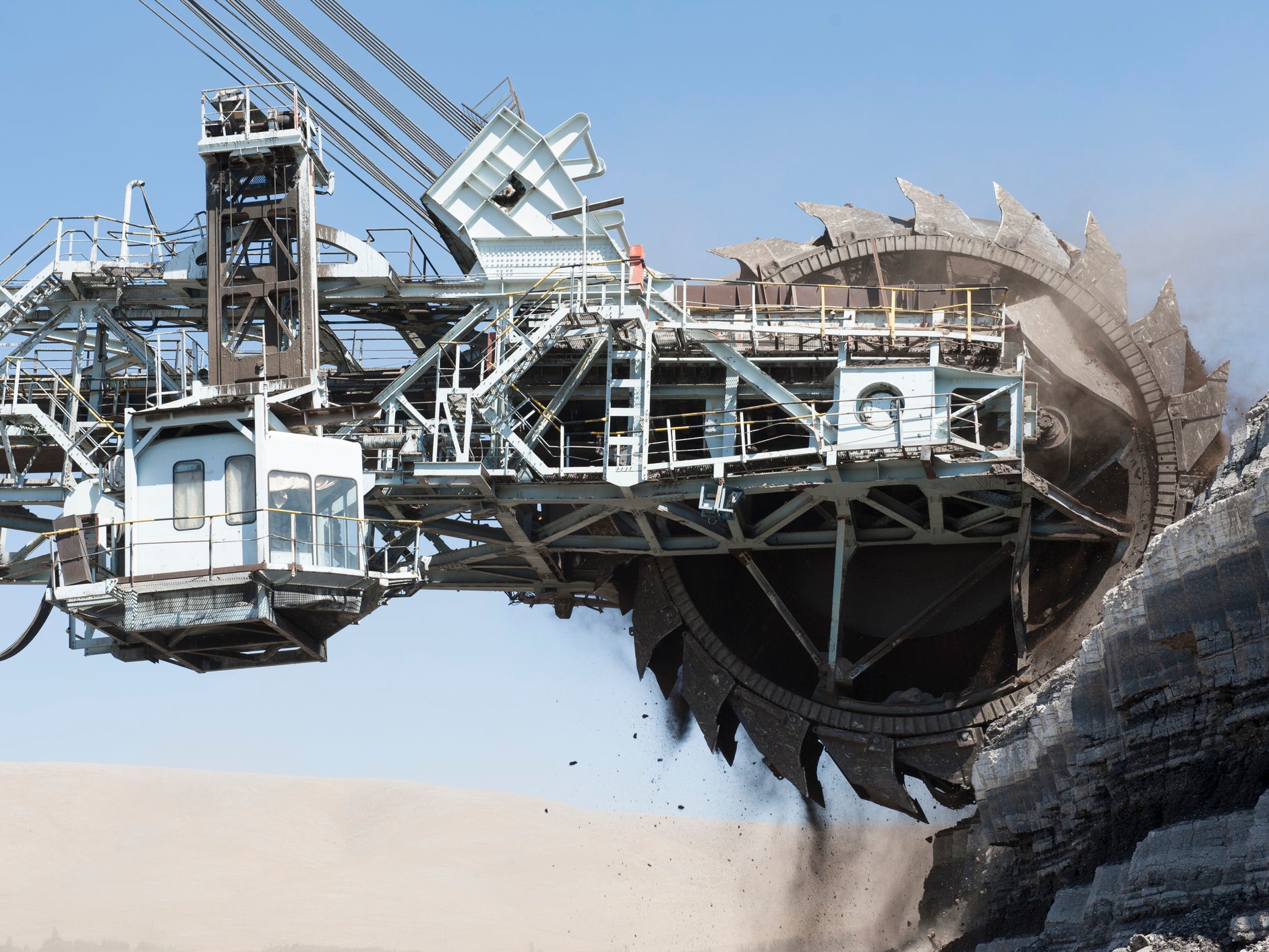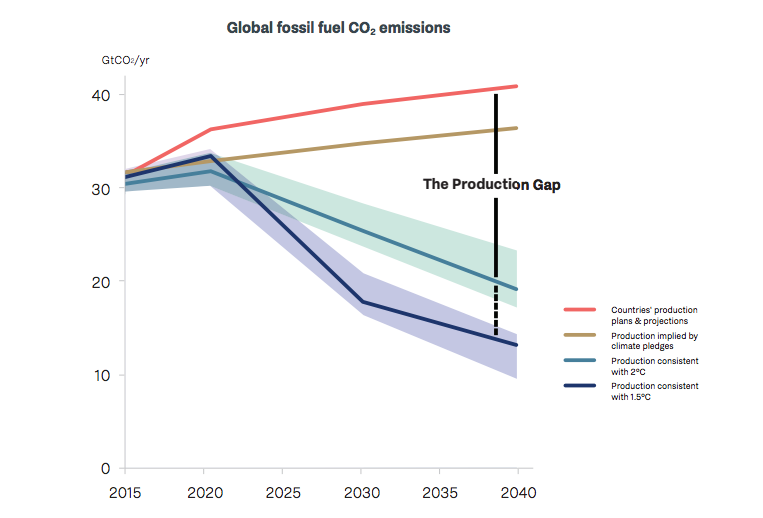‘We’re in a deep hole’: Fossil fuel production on track to exceed safe climate change limits by 120%
‘This report shows just how big the disconnect is between Paris temperature goals and countries’ plans and policies for coal, oil, and gas production,’ says scientist

Your support helps us to tell the story
From reproductive rights to climate change to Big Tech, The Independent is on the ground when the story is developing. Whether it's investigating the financials of Elon Musk's pro-Trump PAC or producing our latest documentary, 'The A Word', which shines a light on the American women fighting for reproductive rights, we know how important it is to parse out the facts from the messaging.
At such a critical moment in US history, we need reporters on the ground. Your donation allows us to keep sending journalists to speak to both sides of the story.
The Independent is trusted by Americans across the entire political spectrum. And unlike many other quality news outlets, we choose not to lock Americans out of our reporting and analysis with paywalls. We believe quality journalism should be available to everyone, paid for by those who can afford it.
Your support makes all the difference.Essential global environmental goals that aim to safeguard life as we know it are being ignored by the world’s major fossil fuel producers – which are on course to exceed the limits set out in the Paris climate agreement by 50 to 120 per cent, a UN study shows.
That agreement established the curbs on greenhouse gas production needed to keep the average global temperature “well below” 2C, compared to pre-industrial levels. Countries signed up to the aim to keep warming to 1.5C.
But the UN’s Production Gap report, which is the first to compare countries’ plans for fossil fuel burning and examines 10 major producers including the US and China, has found they are nowhere near on course to meeting this target.
By 2030, the 10 countries’ planned production would lead to 39 gigatons of carbon dioxide emissions, 53 per cent higher than what is needed to reduce temperature rises to 2C, the report said. Those levels are 120 per cent more than is needed for 1.5C, it found.
The main fuel contributing to this is coal.
The report says that by 2030, “countries plan to produce 150 per cent (5.2 billion tons) more coal than would be consistent with a 2C pathway, and 280 per cent (6.4 billion tons) more than would be consistent with a 1.5C pathway”.
But gas and oil are also on track to exceed carbon budgets, as countries continue to invest in fossil fuel infrastructure that “locks in” oil and gas use.
“Despite more than two decades of climate policy making, fossil fuel production levels are higher than ever,” said Mans Nilsson, executive director of Stockholm Environment Institute, which helped produce the report.
He added: “This report shows that governments’ continued support for coal, oil and gas extraction is a big part of the problem. We’re in a deep hole – and we need to stop digging.”

The Production Gap report comes after the UN Environment Programme (UNEP) Emissions Gap report, which shows that countries around the world are falling short of the emission reductions, and even if they met the Paris climate agreement targets, a disastrous 3-4C rise would happen.
Just half a degree of additional warming is expected to have a catastrophic impact on our planet. According to the UN’s 2018 IPCC report, in a plus 1.5C world, sea level rise would be 10 centimetres less than with 2C, exposing about 10 million fewer people in coastal areas to risks such as floods, storm surges or salt spray damaging crops.
Meanwhile, economic growth is projected to be slower at 2C warming than at 1.5C for many developed and developing countries, drained by events such as floods or droughts, which can undermine crop growth, and an increase in human and animal deaths from heatwaves.
“Over the past decade, the climate conversation has shifted,” said Michael Lazarus, a lead author on the report and the director of Stockholm Environment Institute’s US Centre. “There’s greater recognition of the role that the unfettered expansion of fossil fuel production plays in undermining climate progress.
“This report shows, for the first time, just how big the disconnect is between Paris temperature goals and countries’ plans and policies for coal, oil, and gas production. It also shares solutions, suggesting ways to help close this gap through domestic policies and international cooperation.”
For the first time since the Paris Agreement meetings in 2015, countries are due to review and update their climate goals by the end of 2020, making the next 12 months a critical period for scientists and campaigners to maintain pressure on governments.
Earlier this month, a separate report found three-quarters of the commitments made by countries under the Paris agreement so far were “totally inadequate”.
Join our commenting forum
Join thought-provoking conversations, follow other Independent readers and see their replies
Comments